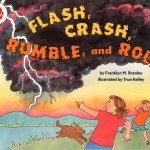
Readers & Thinkers: Say It Isn’t So!
Posted by ludw1086 on Sep 19, 2012 in Anything Goes | Comments Off on Readers & Thinkers: Say It Isn’t So!Dear All,
Looks like after all that fuss over the bill, it didn’t do much for our financial markets. In my last email on September 19, 2008, I said the best thing you could do is get your kids a short in consumer stocks for Christmas and so far had you short something like XLY (an ETF you can short, but actually is long the consumer retail stocks), you would have made 17% through today.
How has history treated investors in “similar circumstances”?
If your investment horizon is longer than 7 years, it has been better to hold on to a market like this, rather than sell your equities and put it in cash, even if there are further declines.
In this historical analysis, I ignore dividends and also ignore inflation I try to identify the PEAK of the Nasdaq until it’s subsequent TROUGH and ask, what happens 5 years later to one’s portfolio? (Updated Version of Table from: http://www.wiley.com/WileyCDA/WileyTitle/productCd-1118250028,descCd-DOWNLOAD.html)
(1) Be careful, though, because in the Nasdaq case, cash beat stocks if we’re not at the bottom. Also, if another crisis occurs, then even 7 years later is not enough – if you look at the 8th year after the Nasdaq drop until today – you’re down.
(2) Some portfolio hedges would include shorting consumer discretionary and financial stocks, you can use ETFs for this purpose.
(3) The short-sell ban on financial stocks ends tonight (October 8, 2008) at midnight, so be careful.
(4) Economists need to work harder at understanding and avoiding bubbles. Bubbles create a misallocation of resources, income redistributions that are largely random, and wasted resources in decision making.
Sincerely
Ludwig
October 8, 2008.







